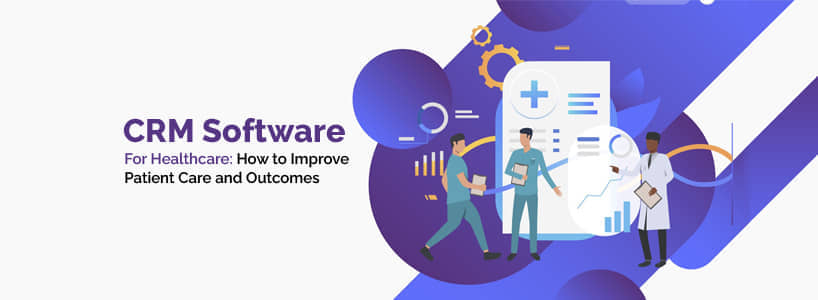In today's fast-paced healthcare industry, managing patient relationships effectively is crucial for delivering quality care and achieving positive outcomes. Customer Relationship Management (CRM) Software, traditionally used in sales and marketing, has emerged as a powerful tool for healthcare providers to streamline operations, enhance patient engagement, and improve overall patient satisfaction.
Key Benefits of CRM Software in Healthcare
- Centralized Patient Information : CRM software provides a centralized repository for patient data, including medical history, appointments, medications, and insurance information. This consolidated view enables healthcare providers to access critical patient information quickly and efficiently, leading to better-informed decision-making.
- Enhanced Patient Engagement : By leveraging CRM, healthcare providers can personalize patient interactions. Automated appointment reminders, personalized communication, and proactive outreach can significantly improve patient engagement and adherence to treatment plans.
- Improved Patient Experience : CRM software can help streamline administrative tasks, such as scheduling appointments and managing referrals. This can reduce wait times and improve the overall patient experience. Additionally, by tracking patient interactions and feedback, healthcare providers can identify areas for improvement and enhance patient satisfaction.
- Data-Driven Insights : CRM software generates valuable insights through data analytics. By analyzing patient data, healthcare providers can identify trends, track key performance indicators (KPIs), and make data-driven decisions to optimize operations and improve patient outcomes.
Essential Features of a Healthcare CRM
Patient Relationship Management:
- Centralized patient profiles
- Detailed medical history tracking
- Appointment scheduling and reminders
- Communication logs
- Document management
Marketing and Sales Automation:
- Targeted marketing campaigns
- Patient outreach and engagement
- Lead generation and nurturing
- Sales pipeline management
Customer Support:
- Issue tracking and resolution
- Help desk and ticketing systems
- Knowledge base and FAQs
Choosing the Right CRM for Your Healthcare Practice
When selecting a CRM solution, consider the following factors:
- Scalability: Ensure the CRM can accommodate your practice's growth and evolving needs.
- Integration Capabilities: The CRM should integrate seamlessly with your existing electronic health record (EHR) and other healthcare systems.
- Security and Compliance: Prioritize a CRM that adheres to strict data privacy and security standards, such as HIPAA.
- User-Friendliness: A user-friendly interface can improve adoption and efficiency.
- Customization Options: The CRM should be customizable to fit your specific workflows and processes.
By leveraging the power of CRM software, healthcare providers can elevate patient care, streamline operations, and drive better outcomes. It's time to embrace technology and revolutionize the way you deliver healthcare.
